During my stay at Airelles, Le Grand Contrôle, a hotel within the grounds of The Palace of Versailles, I was so privileged to be able to go on an after hours tour of The King’s Apartments within the Palace.
The Palace’s history is inextricably linked with Louis XIV. Although the location existed for centuries before he became King, he was the one who decided to extend it beyond the ‘modest’ Chateau that it was back then, and oversee the building of the masterpiece it is today. He also moved the Court there in 1682, where it remained (apart from a brief gap when it went back to Paris) until the French Revolution brought down the Monarchy in 1789.
The King’s Apartments were the King’s most important areas within the Palace, and they housed three generations of King Louis’ before the Revolution. There are two parts of the Apartments – The King’s State Apartments, and the King’s Private Apartments. The latter can only be visited by private tour even within opening hours, and we got to see all of the State Apartments, and some of the Private Apartments after hours with no-one else around. Words can’t describe how truly special the experience was.
The Hercules Room
Work on the Hercules Room was completed in 1736, when François Lemoyne finished the ceiling painting depicting The Apotheosis of Hercules. Sadly, despite being made First Painter to the King by Louis XV in return for his work, Lemoyne committed suicide a year later, in 1737, exhausted by this huge project which had taken four years to complete.
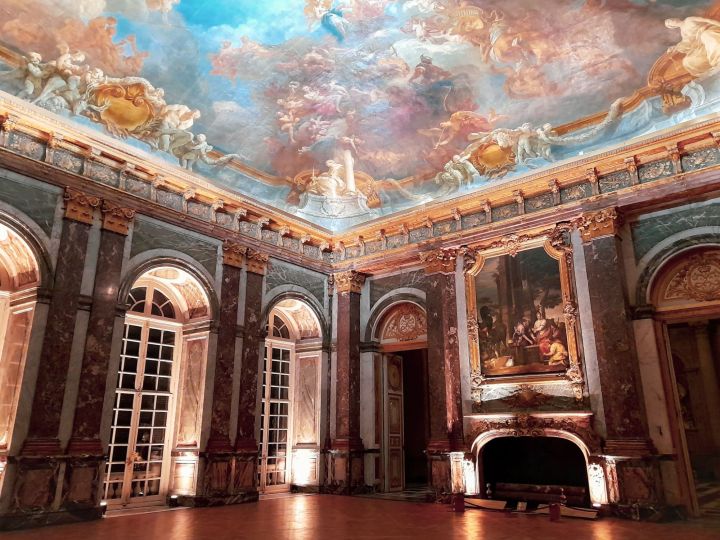
The Venus Room
In this room Venus is depicted on the ceiling as the goddess of love, and the paintings in the arches all show great men or heroes from antiquity relating to famous love stories, but linked to Louis XIV’s own story. For example, the arch depicting Alexander marrying Roxana evokes the king’s own wedding, while the arch illustrating Emperor Augustus watching Roman circus games refers to the carousel in 1662, held in honour of Queen Maria Theresa.
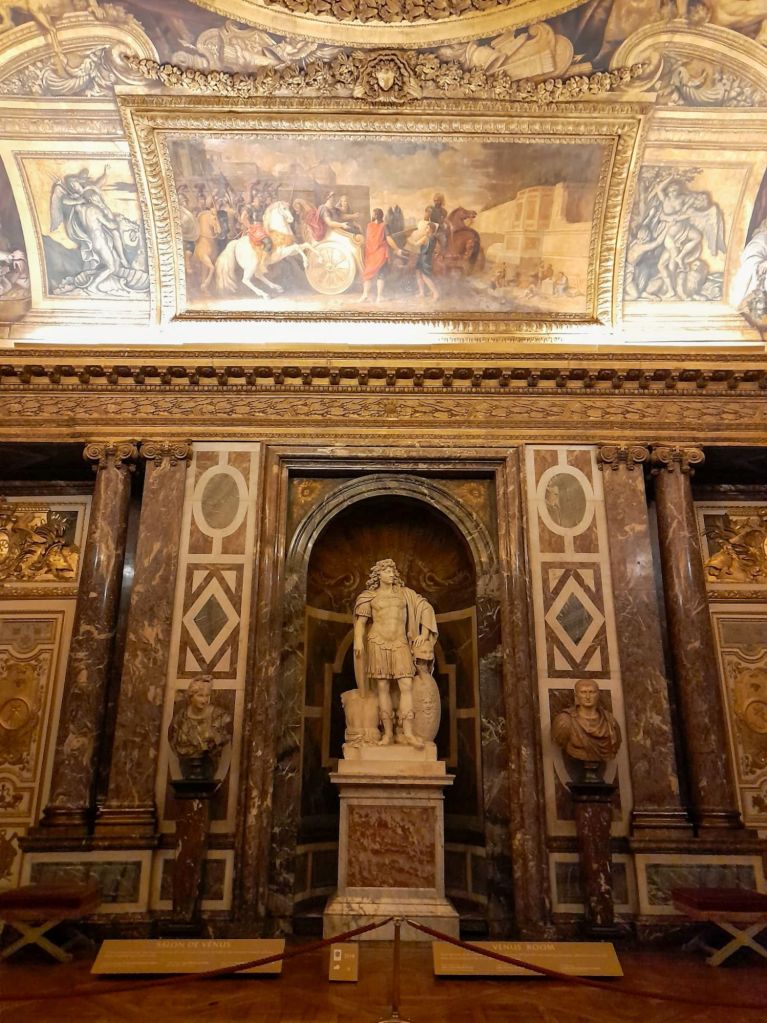
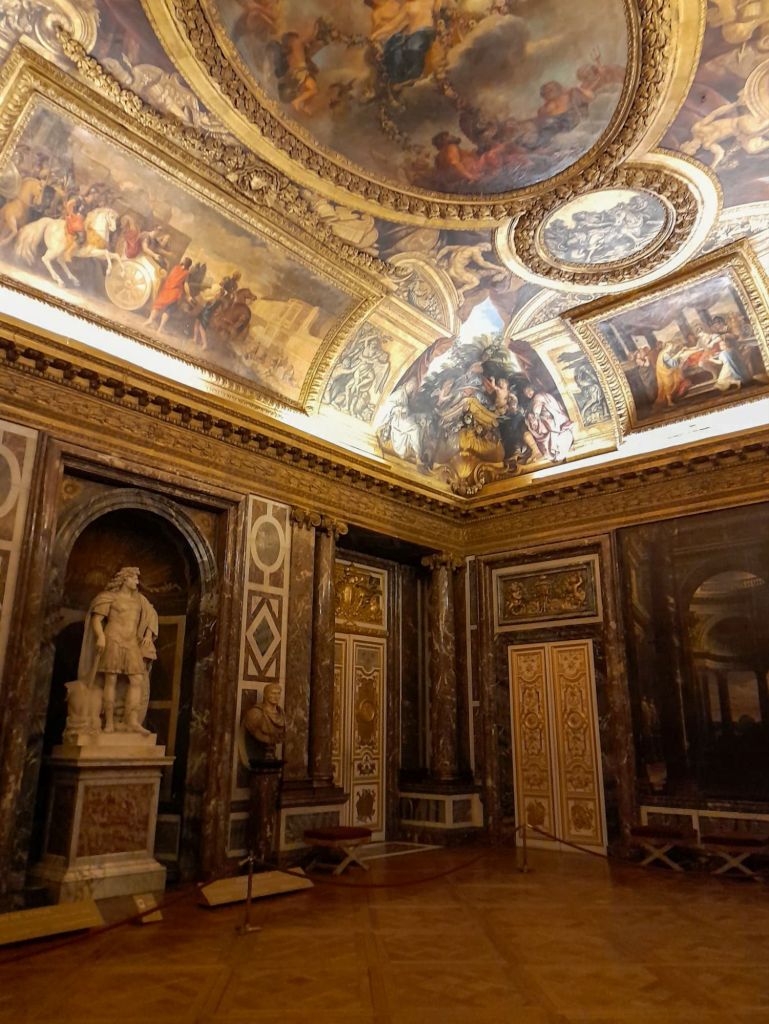
The Diana Room
In Ancient Greek mythology, Diana was the goddess of the hunt, the sister of Apollo, and was also associated with the moon. The central section of the ceiling, painted by Gabriel Blanchard, depicts Diana watching over navigation and hunting scenes. During gatherings under Louis XIV it was used as a Billiards Room, and two tiers of seating were even installed to allow people to watch the game.
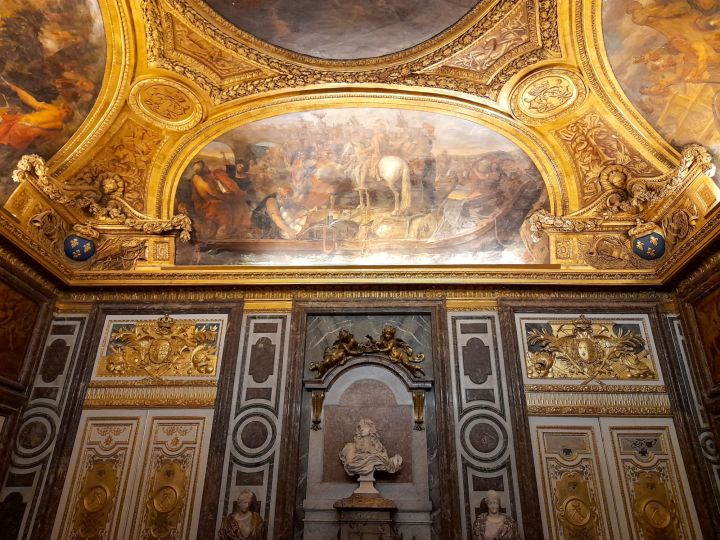
The Mars Room
Initially a Guard Room, The Mars Room is dedicated to the God of War. In the centre of the ceiling is a painting by Claude Audran of Mars on a chariot pulled by wolves. The reds and golds really are imposing and militaristic in feel.
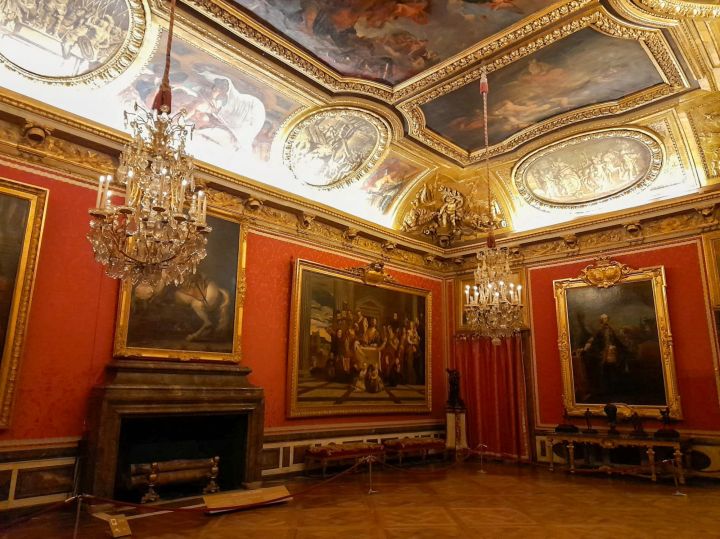
The Mercury Room
The Mercury Room was originally the royal bedchamber in the King’s State Apartment, though it wasn’t often used as such, with the King using the Private Chambers instead. One of the rare moments in which the Mercury Room actually served as a bedroom was when the Duke of Anjou, the grandson of Louis XIV, was proclaimed King of Spain, and slept here for three weeks before travelling to his kingdom. It was also in this room that the coffin containing the body of Louis XIV was displayed from 2 to 10 September 1715.
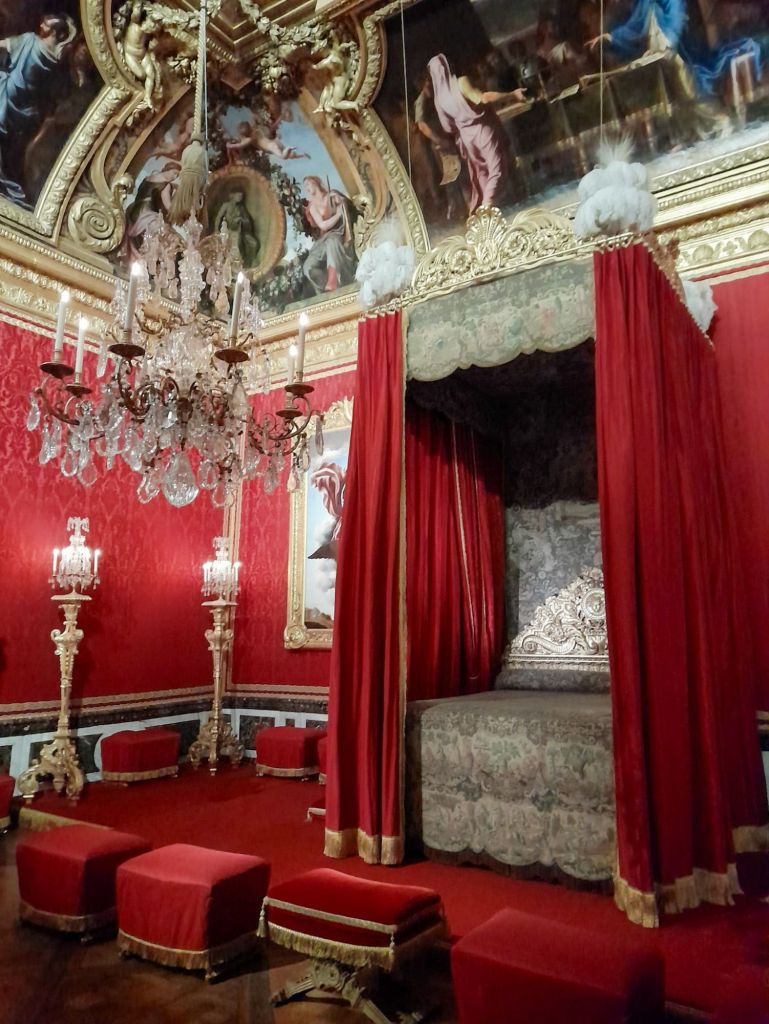
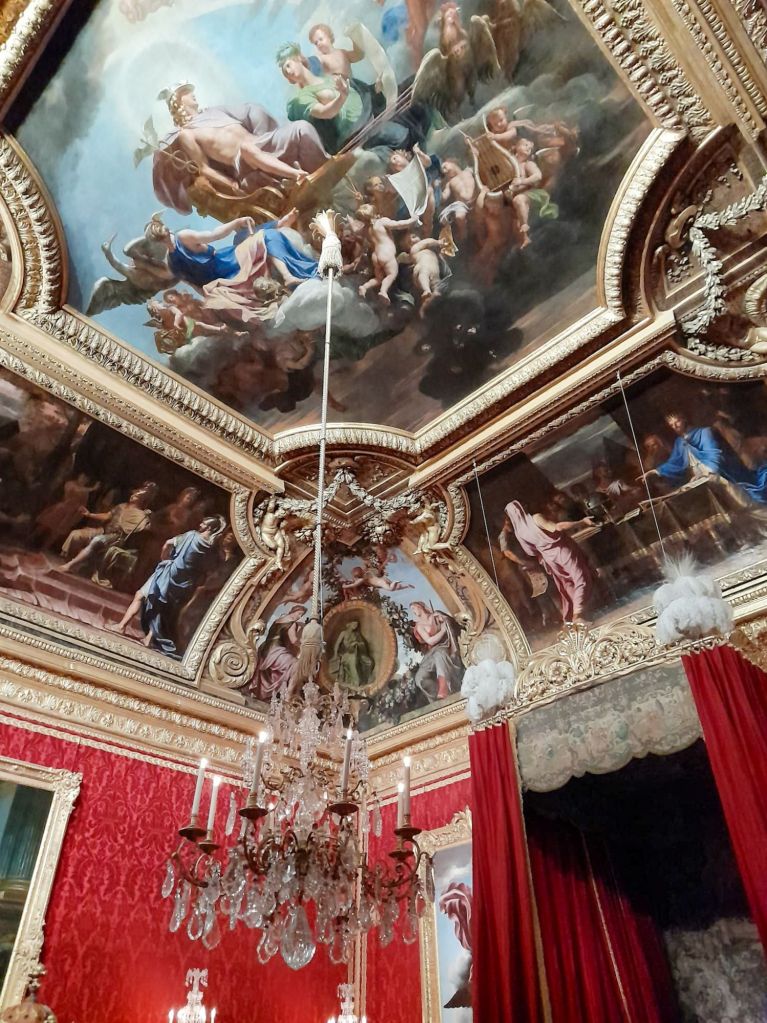
The Hall of Mirrors
The Hall of Mirrors, the most famous room in the Palace, was built to connect the King’s Apartments to the north and the Queen’s to the south. It took 6 years to build, and the entire 73m long room pays tribute to the political, economic and artistic success of France. And did you know there are actually 357 mirrors in the room – crazy!
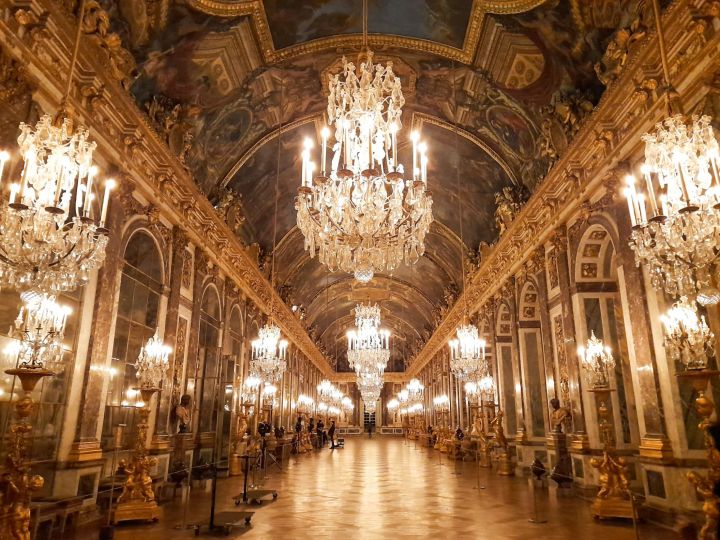
This room is so so special, and I cannot believe we got it all to ourselves. Amazing.
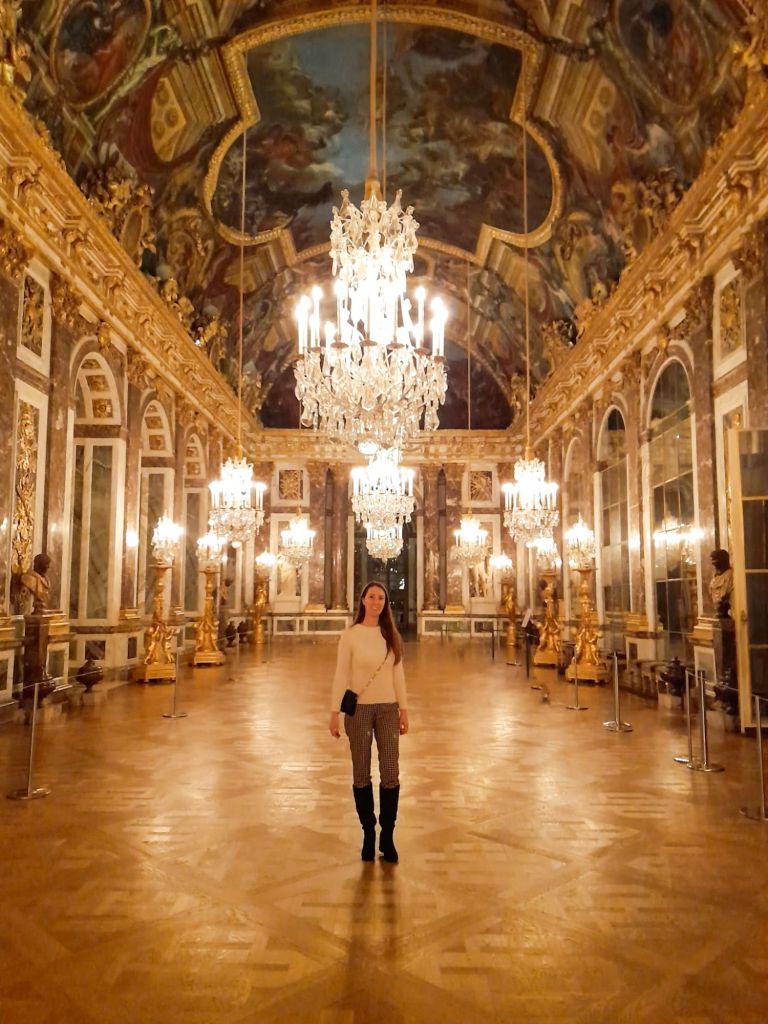
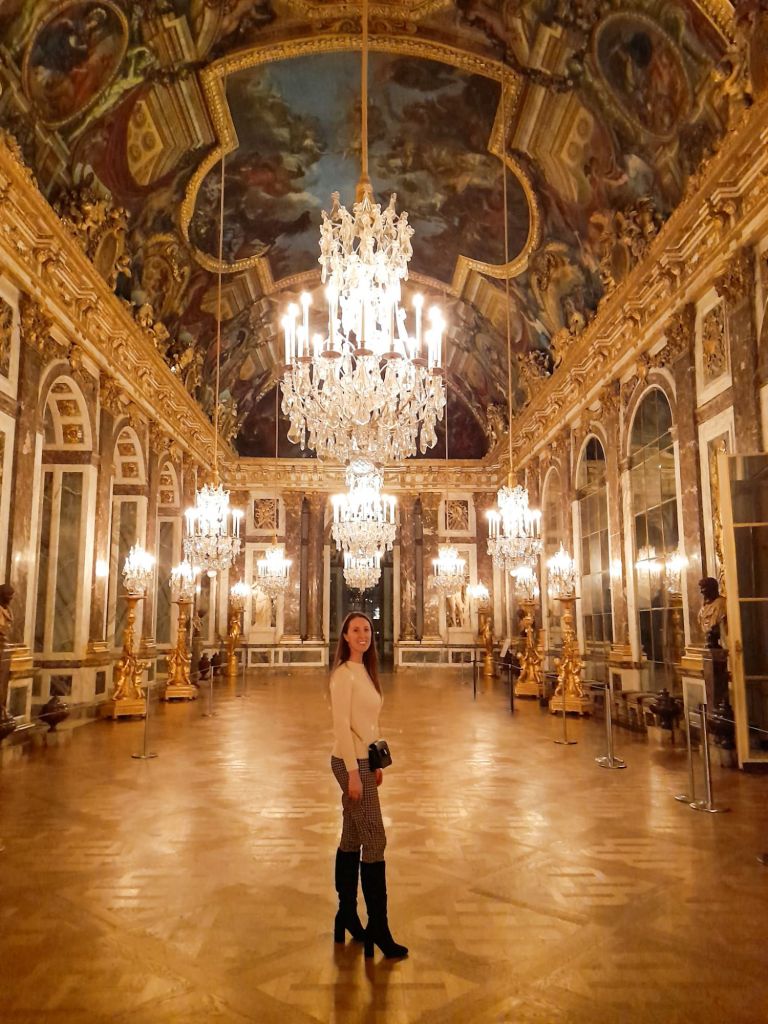
The Clock Room
King Louis XV was very interested in science and especially astronomy. On the floor of this room there is a copper strip marking the Versailles meridian. The special clock giving its name to the room displays the time, day of the week, month, year and lunar quarter, and in the crystal sphere the planets can be seen rotating around the sun. This scientific and artistic monument was designed by Claude-Siméon Passemant, Engineer to the King, and built by the clockmaker Louis Dauthiau. It still works correctly today.
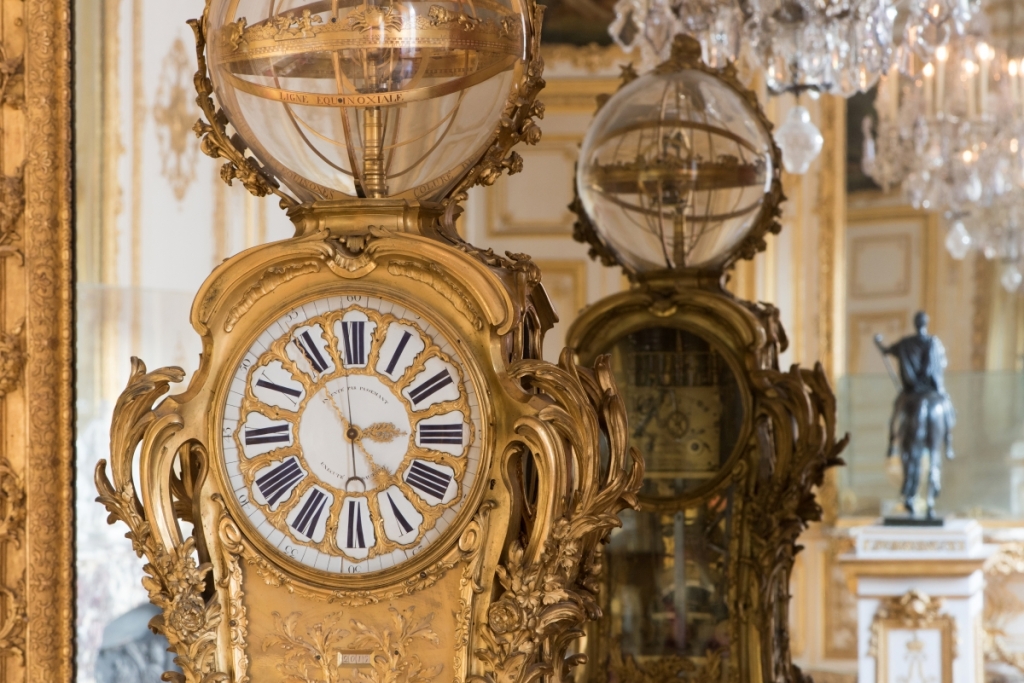
Louis XVI’s Library
This library was designed by the architect Gabriel not long before the death of Louis XV in 1774. Although he already had several libraries on the upper floors (!), the King wanted a larger one on the same level as his apartment. I love libraries and this was my favourite room apart from the Hall of Mirrors.
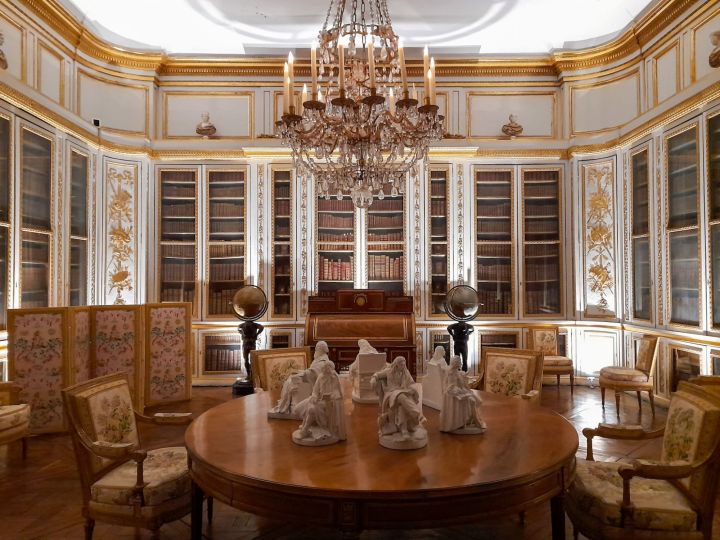
The Royal Chapel
Construction of the Royal Chapel was completed in 1710 at the end of the reign of Louis XIV, and was the fifth – and final – chapel built in the Palace. The Chapel was our final stop on our after hours tour and the perfect way to finish it off.
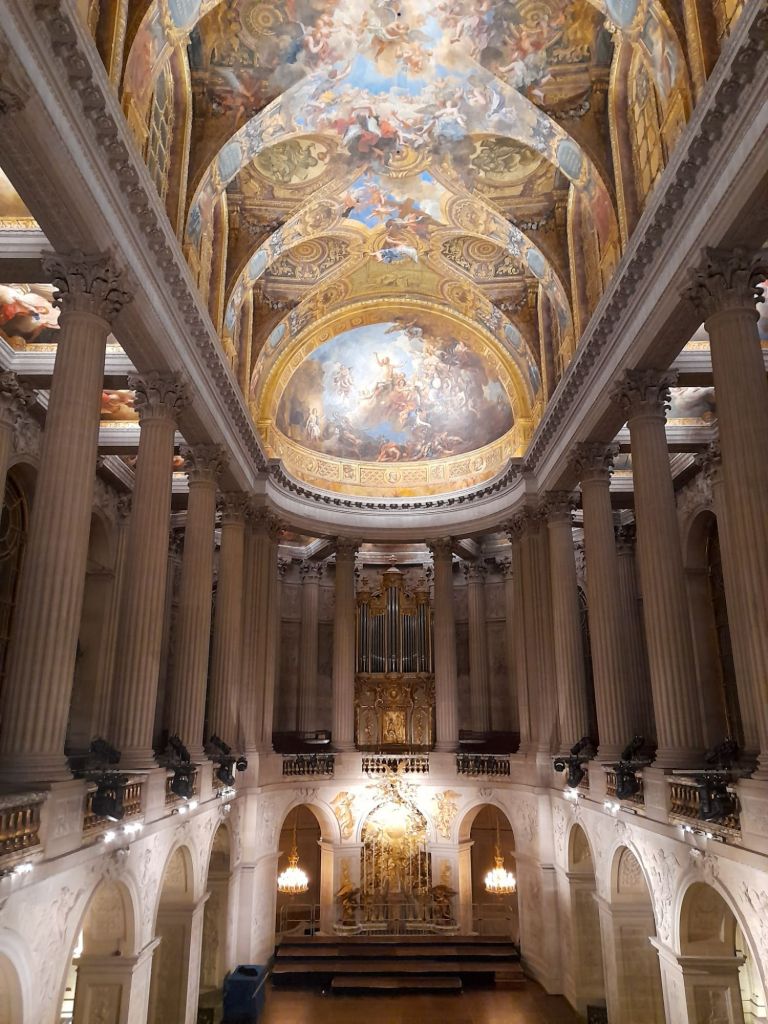
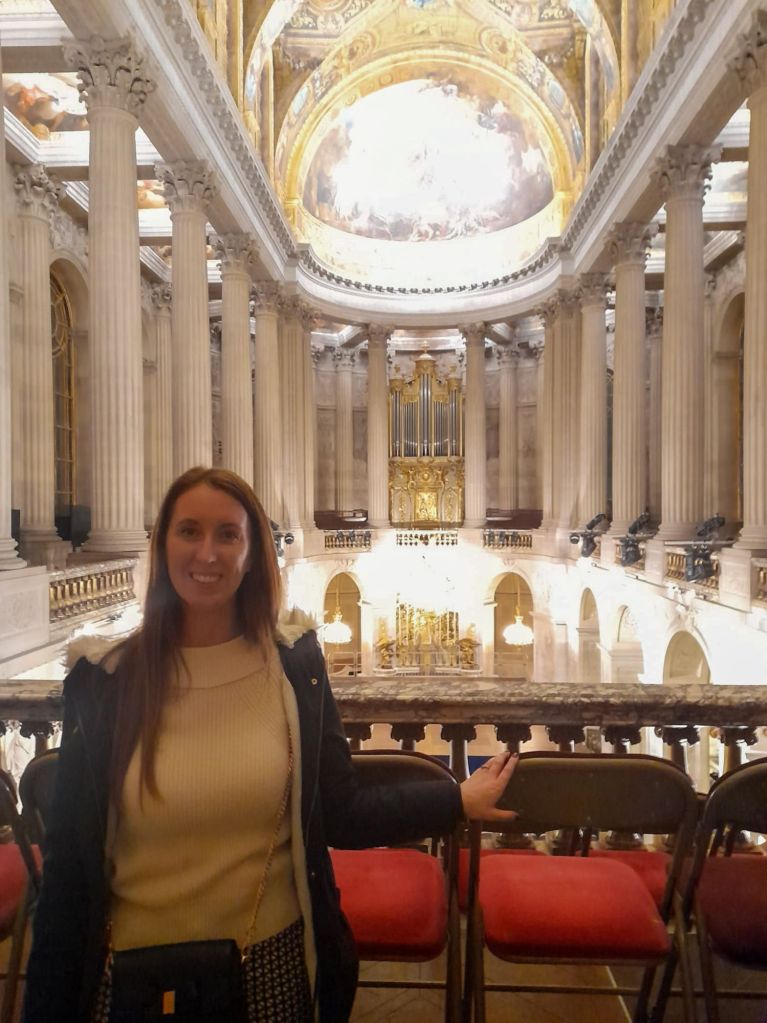
What a special, special experience this after hours tour was. I can’t tell you how amazing it was to see the Palace empty, I feel truly privileged to have done so. What do you think? Stay safe and happy travelling!

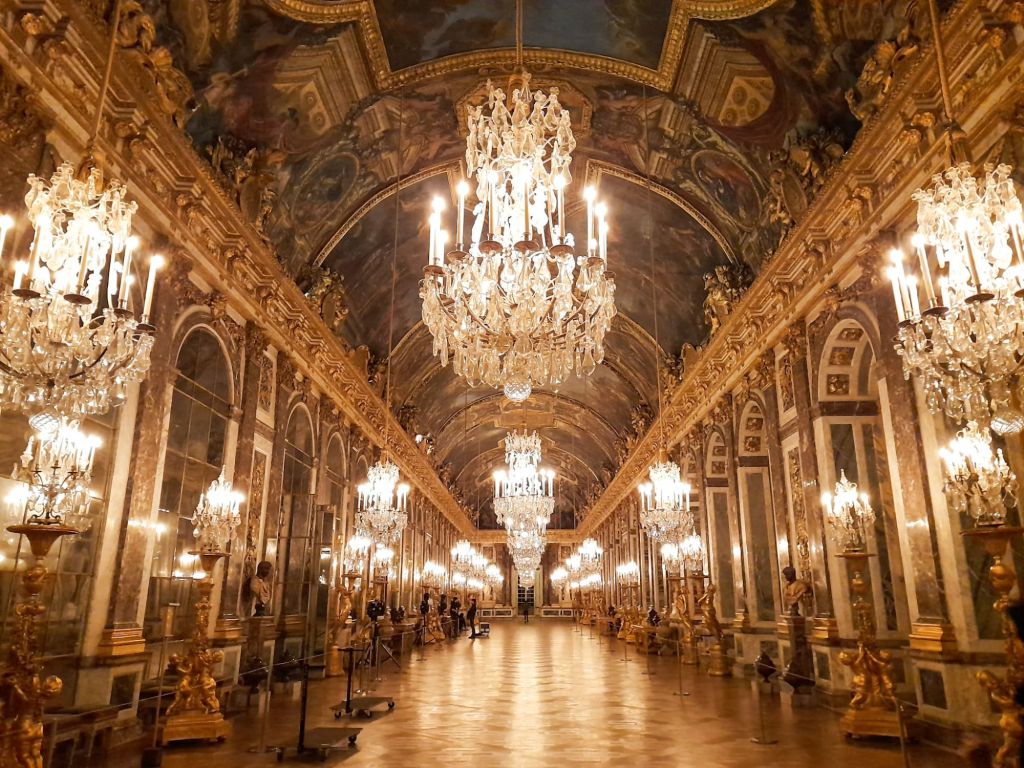
Leave a comment